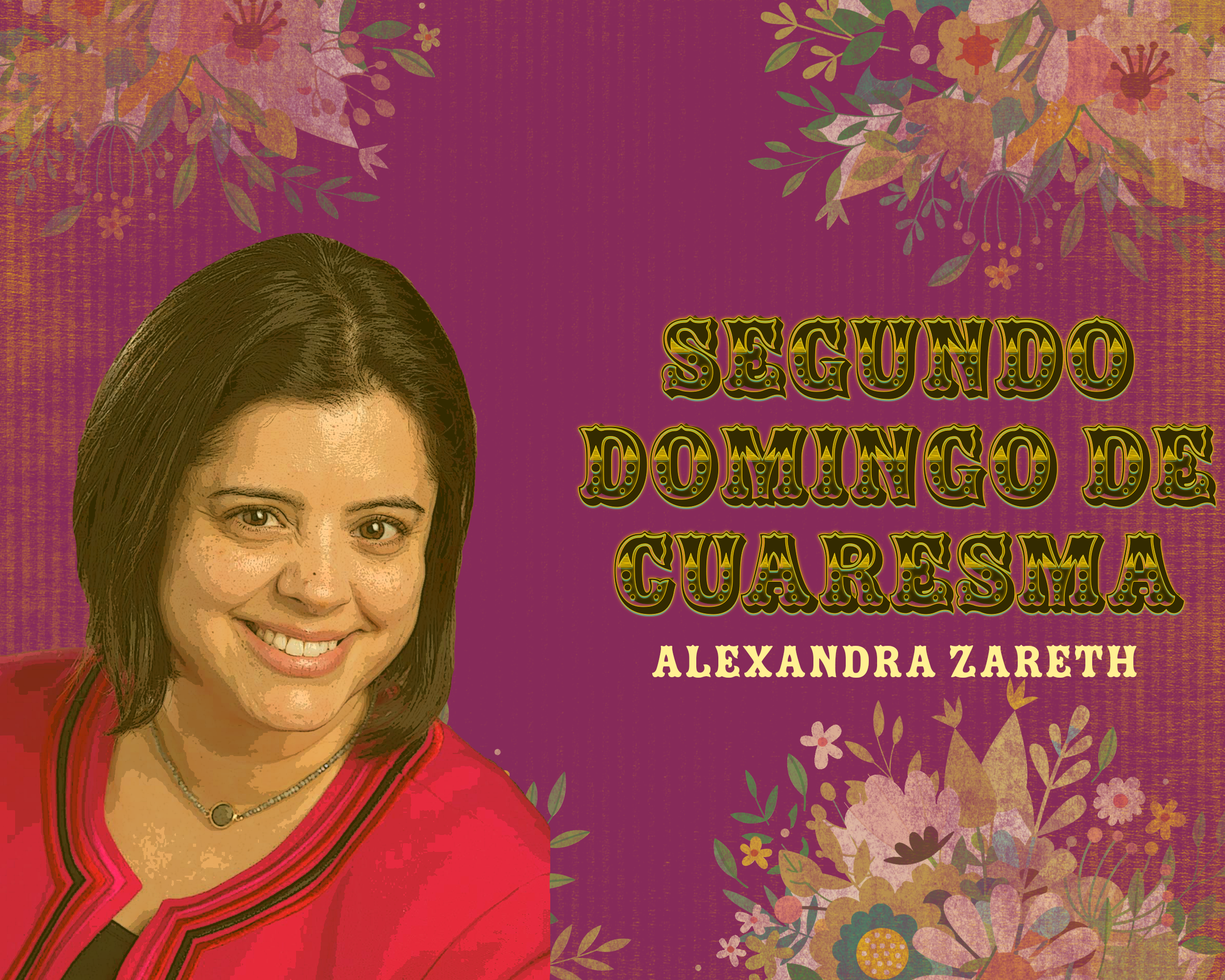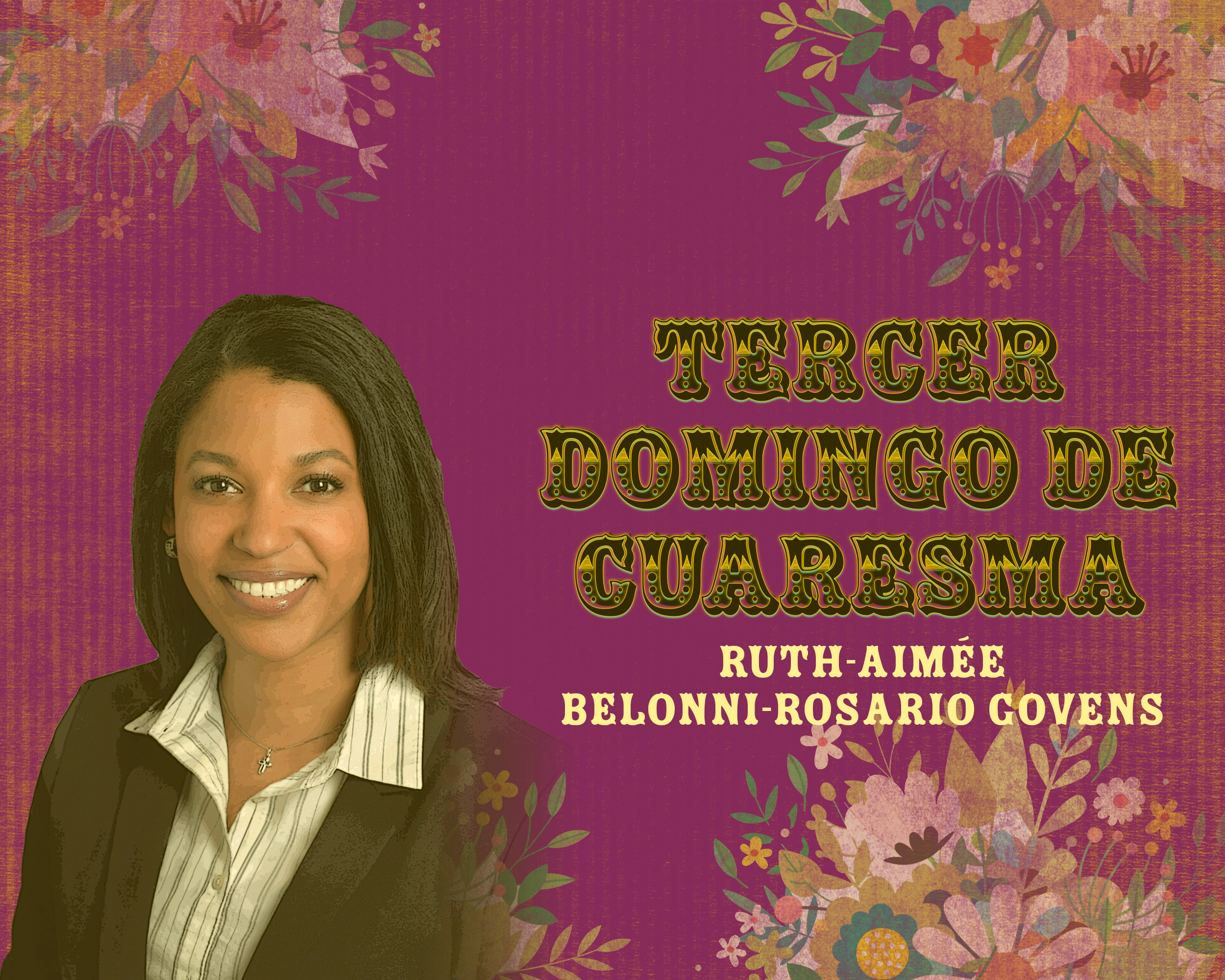Isaiah 55:1-9
The season of Lent is one of meditation, reflection and inward reflection. Lent also provides a space for believers to practice abstinence in multiple ways. Faith people around the world choose to abstain from various acts, activities, behaviors, habits, disciplines. Some abstain from eating meat, others “give up” social media by disconnecting from platforms like Facebook, Instagram, Tik-Tok, Snapchat, and Linked-in. Others take this season of Lent to reflect and cultivate new disciplines and explore life-giving practices.
This particular year in which we celebrate this season of Lent it is hard not to think of wars, of migrants being denied access, detained at borders, murdered, killed. It is hard not to reflect on the impact that the COVID-19 pandemic has inflicted upon all of us. The remnants of war, hate, border walls, fracture relationships, divisions, dehumanization, mental health illnesses, stolen land, colonization, slavery, racism, and minimization of people’s stories and the intentional erasing of community’s histories weighs heavily on us. We find ourselves thirsting as the prophet draws our attention in Isaiah 55:1.
“Everyone who thirsts, come to the waters” (Isaiah 55:1, NRSV), utters the prophet. As we enter this third Sunday of Lent, our thirst increases. Our thirst to be heard, understood, to connect, to go back to a past that never was and will never be unquenchable. Yet, there is a voice in desert calling out, “Come to the waters!” God through the prophet calls us “come, buy and eat!” (Isaiah 55:1, NRSV). “You, with no money, buy wine and milk without money and without price” (Isaiah 55:1, NRSV). How do we quench such a thirst in such a demanding and demeaning world we have created for ourselves?
Living in the messiness of lo cotidiano and in many ways conquering it has been mastered by Latinas for a very long time. Dr. Isasi Díaz wrote that “lo cotidiano refers to a simple world. It is a world where one has to take care of what is scattered along the surface minute by minute” (Isasi-Díaz, 2002, p.10). Latinas across the world in particular and women of color in general know very well how to quench a thirst in the middle of a desert, in the apparent impossible landscape, acquiring the basic necessities that sustains life such as bread, wine, water, and milk.
The third Sunday of Lent, in the year 2022 surrounded by abundance, yet living in a constrictive mindset of scarcity, the voices of Latinas, their struggles, their wisdom surfaced to helps us recognize LIFE in its face and live it. The prophet calls us to focus on what matters in life. We spend our lives pursuing a ‘dream’ of acquisition of ‘stuff’ of hoarding skillset to land positions of power. We are quick to judge and trample one another with the expectation of being rewarded with a cheap recognition of ‘prestige.’
“Listen carefully to prophet” (Isaiah 55:1, NRSV)2 Why do you spend your money for that which is not bread, and your labour for that which does not satisfy? …eat what is good, delight yourselves in rich food. (Isaiah 55:2-3, NRSV) 4 I made you a witness to the peoples, a leader. 5 …you shall call nations that you do not know, and nations that do not know you shall run to you, because of the Lord your God, the Holy One of Israel… (Isaiah 55:4-5, NRSV)
As people of faith, I notice that we have forgotten our calling to draw people to God, to God’s love, mercy, and grace. Throughout centuries we have been more occupied in honing our skills of gatekeepers than building bridges and “giving bread, water, wine, milk at no price to those in need of it.” As people of faith we have distorted God’s plan for us as a people of being a beacon of justice, peace, solidarity. God called us to be in the world to show courage and compassion. Instead we have mastered the skill of apathy. Yet, the desert is filled with people who are thirsting for water, thirsting for change, thirsting for love, for connection, for understanding. What will we do differently? What are those spaces and structures that we will build for the ones who are thirsty to come and “buy bread, water, wine and milk at no price?”
I invite you to perhaps practice something different this third week of Lent. I invite us to take a more active approach to the season of Lent. Reflect on the following questions
- What if we give up and abstain from apathy?
- What if we abstain from gossip?
- What if we abstain from lying?
- What if we abstain from cowardice?
- What if Lent is inviting us to face our temptations in the face (just like Jesus) and instead of “flight” we “fight” for what is right in the eyes of God?
- What if we fight for the needs of water and bread?
- What if we fight for the rights others not just for the comforts our life?
Partner, connect, and network with people and meditate on how you can exercise courage and show compassion in this world. Let lo cotidiano (Isasi-Díaz, 2002), the everyday not the trivial, banal activities, but the constant, intentional, active reflection and re-reflection of how the system affects our daily lives, wake you up from the slumber of apathy. There is plenty of pain, covert pain in the people that are closest to us. How about if we take this season of Lent to SEE and LISTEN to our own pain and suffering and empathize with those around us instead of focusing constantly seeking the richest of the world.
What if Lent is inviting us to a season of urgency and excellence of thirsting for justice, for what is ethical and right before God and abstain from pleasing and being instruments of our society idols of the Green god, Pride god, Attention hoard god, Apathy god, Blinders god, Ignorance god, Deflecting god, Projecting god, Not-listening god?
Now, BREATHE. Yes, there is a lot to be done. You are not called to do it alone. We are called to do it in community. As you continue your journey of Lent I invite you to add one more practice learned from the Latin American community, praying and singing. One of the practices I learned from my grandmother was to read the bible, pray, and sing every morning and every evening. Prayer and signing Psalms in the Latinx community are sources of “water, bread, and wine” (Isaiah 55:1, NRSV) that helps to deal with lo cotidiano (Isasi-Díaz, 2002). Singing helps us expressing different emotions and elevate those emotions as prayers to God. We sing when we are happy. We sing when we are sad. We sing when we are fearful, uncertain, insecure. We sing when we are sick. The lyrics of hymns, songs, and coritos carry us through on our faith journey. I invite you that this week you take time to sing your favorite hymn or song.
For the purposes of this devotion, I share the following song and ending prayer. The song is a popular song I learned during summer camp ministry. It tells us about our calling from God to be examples of God’s love, justice, peace, mercy, and grace in this world. The prayer from the book, “Guerrillas of Grace: Prayers for the Battle” (Lodder, 1981, p.73), reminds us of our mortality and humanity with the hope and assurance of God’s unwavering presence, love, promise, and commitment to us as God’s people.
Go, reflect, meditate, praise, pray, and sing. May your meditations and reflections wake you up from a slumber of apathy and take you on the journey of courage and compassion.
As I reflect, and hope you are too in the words of Isaiah, the following corito comes to mind:
“Somos el pueblo de DIOS”
Somos el pueblo de Dios
Somos un pueblo especial
Llamados para anunciar las virtudes de Aquel
Que nos llamo a su luz
Somos el pueblo de Dios
Su sangre nos redimió
Y su espíritu dio para darnos poder
Y ser testigos de El
Y llevaremos su gloria a cada pueblo y nación
Trayéndoles esperanza y nuevas de salvación
Y su amor nos impulsa
No nos podemos callar
Anunciaremos al mundo de su amor y verdad
“We are the people of God”
We are the people of God
We are a special people
Called to announce the virtues of the One
who called us to His light
We are the people of God
His blood redeemed us
And He gave us the Spirit to give us power
And be witnesses of Him
And we will bring His glory to every people and nation
Bringing them hope and tidings of salvation
And His love propels us
we can’t shut up
We will announce to the world of his love and truth
Let us pray:
Sometimes It Just Seems to Be Too Much
Sometime, Lord, it just seems to be too much:
too much violence, too much fear;
too much of demands and problems;
too much of broken dreams and broken lives;
too much of war and slums and dying;
too much of greed and squishy fatness and the sounds of people devouring each other and the earth;
too much of stale routines and quarrels, unpaid bills and dead ends;
too much of words lobbed in to explode and leaving shredded hearts and lacerated souls;
too much of turned-away backs and yellow silence, red rage and the bitter taste of ashes in my mouth
Sometimes the very air seems scorched by threats and rejection and decay until there is nothing but to inhale pain and exhale confusion.
Too much of darkness, Lord, too much of cruelty and selfishness and indifference…
Too much, Lord, too much, too bloody, bruising, brain-washing much.
Or is it too little, too little of compassion, too little of courage, of daring, of persistence, of sacrifice;
too little of music and laughter and celebration?
O God, make of me some nourishment for these starved times, some food for my brothers and sisters
who are hungry for gladness and hope that, being bread for them, I may also be fed and be full.
Amen.
References:
Isasi-Díaz, A. M. (2002). Lo Cotidiano: A Key Element of Mujerista Theology. Journal of Hispanic / Latino Theology, 10(1), 5-17. https://repository.usfca.edu/cgi/viewcontent.cgi?article=1026&context=jhlt
Lodder, T. (1981). Guerrillas of Grace:Prayers for the Battle. Augsburg Books.

Rev. Ruth-Aimée Belonni-Rosario Govens is a servant of God committed to educational ministry. For over 15 years Ruth-Aimée has in higher education, specifically as an administrator at seminaries where she has seen the life-changing effects of theological education on students who have followed their call to ministry. She is proud of her work developing student and institutional strategies that have created welcoming, safe environments that enhance students’ potential and ability to minister and actively engage in the world. She has also served the PCUSA in many capacities from congregational ministry to mid-governing to the national level working with multiple committees. She is an ordained Teaching Elder (Minister of Word and Sacraments) in the PCUSA. She has written several articles and presented at various events as panelist, leading workshops, and facilitating conversations. Rev. Ruth-Aimée is happily married to Dr. Gordon A. Govens. Both are entertained by their two dogs, Bootsy Collins (Great Dane) and Fred Sanford (Rat Terrier). She enjoys the beach, sports, learning about wine with her partner, and spending quality time with her family and friends.



Unbound Social